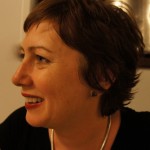Faculty Fellows
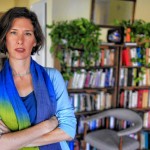 Grace Davie is Associate Professor of History at Queens College, where she currently serves as Director of Graduate Studies in History. Grace’s research explores the co-evolution of social movements, labor struggles, public policy, and expert knowledge. She is the author of Poverty Knowledge in South Africa: A Social History of Human Science in South Africa, 1855-2005 (Cambridge University Press, 2015). Grace’s new project is an intellectual history of corporate research, community organizing, and so-called “corporate campaigns” in the United States since the 1960s. Through interviews and archival research, Grace is exploring how leading corporate campaigners innovated, borrowed, struggled over, and refined critical research methodologies, organizing principles, and political concepts through an open-ended experimental process. She wants to understand what the rise of this new and largely undefined field of expertise suggests about the complexities of the late twentieth and early twenty-first centuries.
Grace Davie is Associate Professor of History at Queens College, where she currently serves as Director of Graduate Studies in History. Grace’s research explores the co-evolution of social movements, labor struggles, public policy, and expert knowledge. She is the author of Poverty Knowledge in South Africa: A Social History of Human Science in South Africa, 1855-2005 (Cambridge University Press, 2015). Grace’s new project is an intellectual history of corporate research, community organizing, and so-called “corporate campaigns” in the United States since the 1960s. Through interviews and archival research, Grace is exploring how leading corporate campaigners innovated, borrowed, struggled over, and refined critical research methodologies, organizing principles, and political concepts through an open-ended experimental process. She wants to understand what the rise of this new and largely undefined field of expertise suggests about the complexities of the late twentieth and early twenty-first centuries.
 Kwasi Konadu is Professor of History at BMCC, The City University of New York. He has conducted extensive archival and field research in West Africa, Europe, Brazil, the Caribbean basin, and North America, and much of his writings focus on African and African diasporic history. He is the author of Indigenous Medicine and Knowledge in African Society (Routledge, 2007), A View from the East: Education and Black Cultural Nationalism in New York City (Syracuse Univ. Press, 2009), The Akan Diaspora in the Americas (Oxford Univ. Press, 2010), The Akan People: A Documentary Reader, 2 vols. (Markus Wiener Publishers, 2013), Transatlantic Africa, 1440-1880 (Oxford Univ. Press, 2014), and (with Clifford Campbell) The Ghana Reader: History, Culture, Politics (Duke Univ. Press, 2014). Dr. Konadu is currently writing a history of diaspora and settlement in the Gold Coast/Ghana, a history of slavery and spirituality in Atlantic Africa, and a world history that focuses on the challenge of human co-existence. Dr. Konadu is also the founding director of the nonprofit publishing group, Diasporic Africa Press, Inc.
Kwasi Konadu is Professor of History at BMCC, The City University of New York. He has conducted extensive archival and field research in West Africa, Europe, Brazil, the Caribbean basin, and North America, and much of his writings focus on African and African diasporic history. He is the author of Indigenous Medicine and Knowledge in African Society (Routledge, 2007), A View from the East: Education and Black Cultural Nationalism in New York City (Syracuse Univ. Press, 2009), The Akan Diaspora in the Americas (Oxford Univ. Press, 2010), The Akan People: A Documentary Reader, 2 vols. (Markus Wiener Publishers, 2013), Transatlantic Africa, 1440-1880 (Oxford Univ. Press, 2014), and (with Clifford Campbell) The Ghana Reader: History, Culture, Politics (Duke Univ. Press, 2014). Dr. Konadu is currently writing a history of diaspora and settlement in the Gold Coast/Ghana, a history of slavery and spirituality in Atlantic Africa, and a world history that focuses on the challenge of human co-existence. Dr. Konadu is also the founding director of the nonprofit publishing group, Diasporic Africa Press, Inc.
Siona Wilson teaches art history at the College of Staten Island and the Graduate Center. She is the author of Art Labor, Sex Politics: Feminist Effects in 1970s British Art and Performance (Minnesota, 2015). Her research interests are grounded in issues of sexual difference, sexuality and the intersection of art and politics in post-war and contemporary art in relation to experiment film, video, photography, performance and sound/music. She has published essays in journals such as Art History, October, Oxford Art Journal, Third Text, and Women’s Studies Quarterly. Her current research project, provisionally entitled, Photography Counter-Fact: Feminism, Archivality, and State Violence after the Critique of Social Concern, addresses experimental documentary practices in film and photography from the 1980s to the present (with theoretical roots in the 1930s). This project is engaged with the instrumentalization of women’s liberation in the context of war, state violence, and postcolonial geopolitics.
Dissertation Writing Fellows
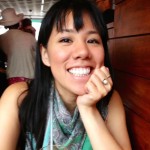 Kristina Huang is a doctoral candidate in the English Program at The Graduate Center, CUNY. Her dissertation, titled “Toward a Black Enlightenment: the Making of an Anglo-African Class in the Long Eighteenth Century,” examines the aesthetics and political philosophies in Anglophone works by writers of the African Diaspora. She has contributed writing to Small Axe Salon, ABOPublic: An Interactive Forum for Women in the Arts, 1640-1830, Social Text Journal online, and Warscapes. Kristina is also a Fellow at the Institute for Research on the African Diaspora in the Americas and the Caribbean.
Kristina Huang is a doctoral candidate in the English Program at The Graduate Center, CUNY. Her dissertation, titled “Toward a Black Enlightenment: the Making of an Anglo-African Class in the Long Eighteenth Century,” examines the aesthetics and political philosophies in Anglophone works by writers of the African Diaspora. She has contributed writing to Small Axe Salon, ABOPublic: An Interactive Forum for Women in the Arts, 1640-1830, Social Text Journal online, and Warscapes. Kristina is also a Fellow at the Institute for Research on the African Diaspora in the Americas and the Caribbean.
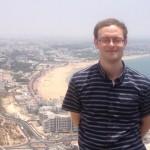 Mark Drury is a Doctoral Candidate in Anthropology. His dissertation project examines some of the political projects that have developed as part of the decolonization of the Sahara, with research conducted in Morocco, Moroccan-occupied Western Sahara, and Mauritania. He has written for Anthropology Now and The Arab World Geographer, and is also a 2015/16 Fellow at the Center for Place Culture and Politics.
Mark Drury is a Doctoral Candidate in Anthropology. His dissertation project examines some of the political projects that have developed as part of the decolonization of the Sahara, with research conducted in Morocco, Moroccan-occupied Western Sahara, and Mauritania. He has written for Anthropology Now and The Arab World Geographer, and is also a 2015/16 Fellow at the Center for Place Culture and Politics.
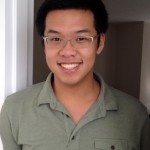 Chris A. Eng is a doctoral candidate in English at The Graduate Center, City University of New York. His dissertation project “Dislocating Camps: On State Power, Queer Aesthetics, and Asian/Americanist Critique” explores multiple sites of camp to analyze the mutually constitutive spatial and aesthetic structures of confinement that consolidated the U.S. national body politic over and against its racial others. At CUNY, he has been extensively involved with critical diversity efforts, including CLAGS: The Center for LGBTQ Studies, The Mentoring Future Faculty of Color Project, and the Revolutionizing American Studies Initiative. He taught composition and literature courses for three years in the English department at Queens College, CUNY.
Chris A. Eng is a doctoral candidate in English at The Graduate Center, City University of New York. His dissertation project “Dislocating Camps: On State Power, Queer Aesthetics, and Asian/Americanist Critique” explores multiple sites of camp to analyze the mutually constitutive spatial and aesthetic structures of confinement that consolidated the U.S. national body politic over and against its racial others. At CUNY, he has been extensively involved with critical diversity efforts, including CLAGS: The Center for LGBTQ Studies, The Mentoring Future Faculty of Color Project, and the Revolutionizing American Studies Initiative. He taught composition and literature courses for three years in the English department at Queens College, CUNY.
Visiting Scholar
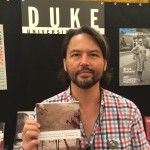 Christopher J. Lee is the author of Unreasonable Histories: Nativism, Multiracial Lives, and the Genealogical Imagination in British Africa (Duke UP, 2014) and Frantz Fanon: Toward a Revolutionary Humanism (Ohio UP, 2015). He is also the editor of Making a World after Empire: The Bandung Moment and Its Political Afterlives (Ohio UP, 2010). He has taught at a number of universities in the U.S., Canada, and South Africa, most recently the University of the Witwatersrand in Johannesburg. He is currently completing two book projects. The first is a critical edition of a memoir of the Soviet Union by South African writer-activist, Alex La Guma, entitled A Soviet Journey, under contract with Lexington. The second is a short cultural history of jet lag, for the Object Lessons series published by Bloomsbury. Trained as southern Africanist, the principal theme of his work is increasingly about, what he calls, “global African history”—a need to deterritorialize the spatial assumptions of Africa’s past, specifically during the long twentieth century.
Christopher J. Lee is the author of Unreasonable Histories: Nativism, Multiracial Lives, and the Genealogical Imagination in British Africa (Duke UP, 2014) and Frantz Fanon: Toward a Revolutionary Humanism (Ohio UP, 2015). He is also the editor of Making a World after Empire: The Bandung Moment and Its Political Afterlives (Ohio UP, 2010). He has taught at a number of universities in the U.S., Canada, and South Africa, most recently the University of the Witwatersrand in Johannesburg. He is currently completing two book projects. The first is a critical edition of a memoir of the Soviet Union by South African writer-activist, Alex La Guma, entitled A Soviet Journey, under contract with Lexington. The second is a short cultural history of jet lag, for the Object Lessons series published by Bloomsbury. Trained as southern Africanist, the principal theme of his work is increasingly about, what he calls, “global African history”—a need to deterritorialize the spatial assumptions of Africa’s past, specifically during the long twentieth century.

